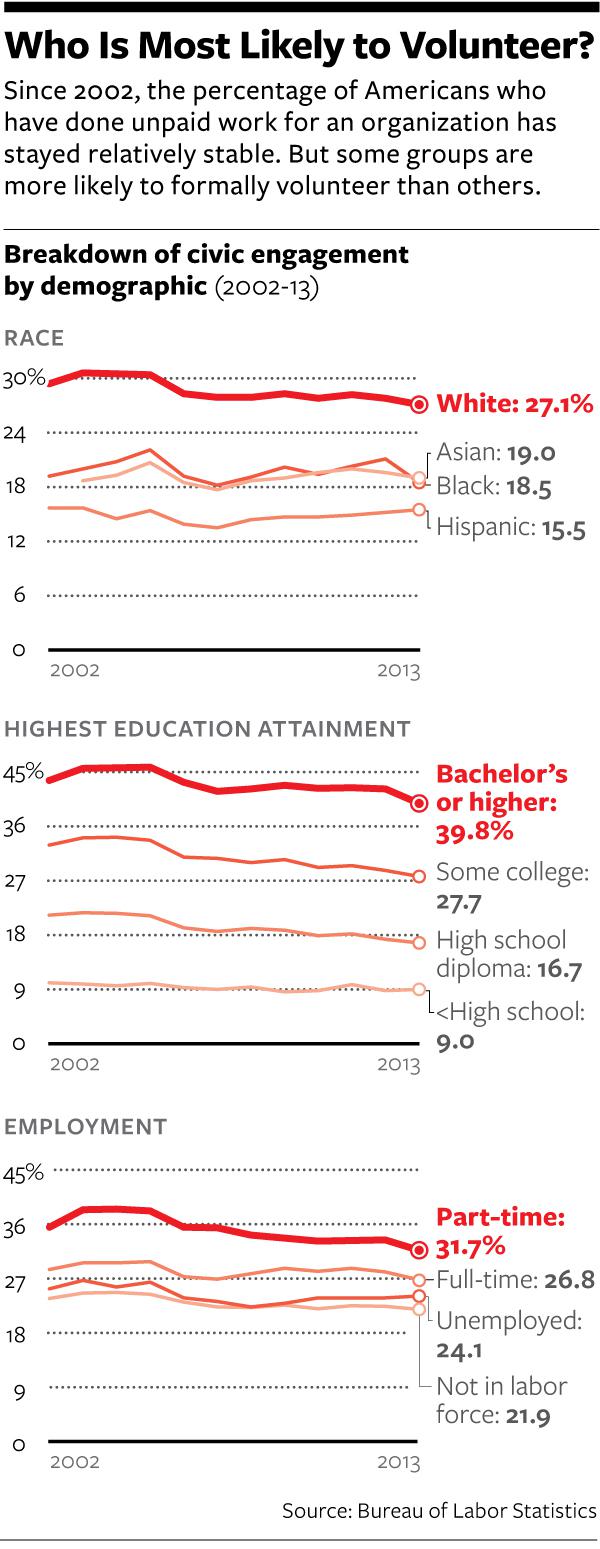Fawn Johnson at the National Journal: “Who is more civically engaged—the person who votes in every election or the nonvoter who volunteers as a crossing guard at the local elementary school? What about the person who comments on an online news story? Does it count more if he posts the article on his Facebook page and urges his friends to act? What about the retired couple who takes care of the next-door neighbor’s kid after school until her single mom gets home from work?
The concept of civic engagement is mutating so fast that researchers are having a hard time keeping up with it. The Bureau of Labor Statistics has been collecting data on volunteering—defined as doing unpaid work through or for an organization—only since 2002. But even in that relatively short time period, that definition of “volunteering” has become far too limiting to cover the vast array of civic activity sprouting up online and in communities across the country.

Here’s just one example: Based on the BLS data alone, you would think that whites who graduated from college are far more likely to volunteer than African Americans or Hispanics with only high school degrees. But the the BLS’s data doesn’t take into account the retired couple mentioned above, who, based on cultural norms, is more likely to be black or Hispanic. It doesn’t capture the young adults in poor neighborhoods who tell those researchers that they consider being a role model to younger kids their most important contribution to their communities. Researchers say those informal forms of altruism are more common among minority communities, while BLS-type “volunteering”—say, being a tutor to a disadvantaged child—is more common among middle-class whites. Moreover, the BLS’s data only scratches the surface of political involvement…”